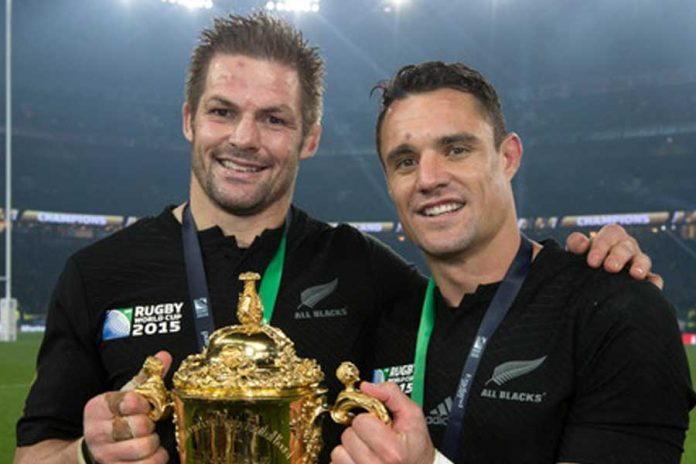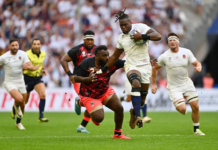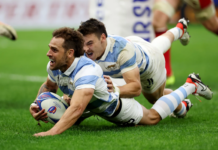Richie McCaw and Daniel Carter suited up in black together in 89 tests and won 80 of them.
Before each of those internationals, you could imagine the collective sigh of their opponents when they faced the prince of marauders and his rapier director.
A flanker and a first five-eighths – the two pivotal positions in any All Blacks side since this nation began its fascination with rugby – remarkable athletes cast in the same team.
Twin diamonds honed on the flatlands in Canterbury and polished to sparkle on the greatest rugby grounds around the planet.
Great players festoon All Blacks history and these were two of the finest. A reserved country lad from Hakataramea and the quiet kid from Southbridge harvested their considerable talents and, in the same era, delivered a dozen golden years to the men in black.
McCaw loomed into my international focus at Lansdowne Rd, Dublin in the middle of November 2001 in a scrum-capped man-of-the-match performance, and there he was in his 2015 World Cup – winning swansong at Twickenham, bookending his career in similar style.
There was never any doubt they would be picked for the 2003 World Cup, but their partnership was in only three pool games.
After new coaches Graham Henry, Steve Hansen and Wayne Smith took over in 2004, they made their big play on the end-of-year tour to Europe, picking Carter as their primary five-eighths.
In the late afternoon November light, several kilometres from the centre of Rome at a suburban ground with a capacity of less than 25,000, the All Blacks fielded McCaw and Carter together in their regal roles.
McCaw wore his No 7 jersey and Carter had No 10 on his back as they marauded through the match, unpicking their opponents.
A year later they were in their pomp against the Lions to mock the Power of Four tour, especially at the Cake Tin where Carter was in imperious form for a 33-point haul in the 48-18 victory.
The pair’s massive impact – including McCaw’s rise to the team captaincy – brought a great vibe to the 2007 World Cup campaign, but some curious picks and a leg injury to Carter before the quarter-final bit into that target.
No matter, the 2011 tournament was on home soil, and was going to plan until Carter injured his groin and was replaced, while McCaw was hampered hugely because of a broken foot.
The All Blacks claimed the top prize but there were missing pieces for the golden partnership and no guarantees both would be around for a repeat tilt at this Webb Ellis Trophy. Injury slowed Carter who struggled to add 17 tests to his tally in three seasons, while McCaw churned through more than double that tally.
But determination allied to buckets of conditioning pulled their talent to the verge of one final foray at this year’s World Cup.
The All Blacks equivalent of Lille and Thomson, Redgrave and Pinsent, Joe Montana and Jerry Rice was back – but in how much business? They worked strongly through pool games then poured it on in the playoff demolition of France.
In the final minutes, Carter damaged his knee. Not 2011. Not again, surely.
Someone without his resilience or all that experience might have lost confidence.
Instead, the champion captain and five-eighths added to their legacy as the All Blacks won successive titles and their first one offshore.

















